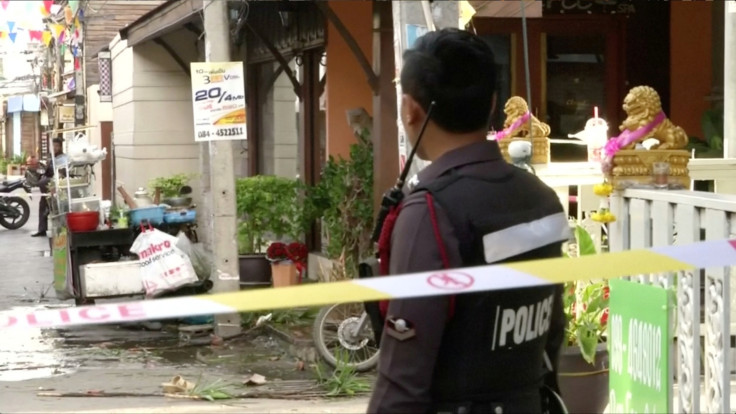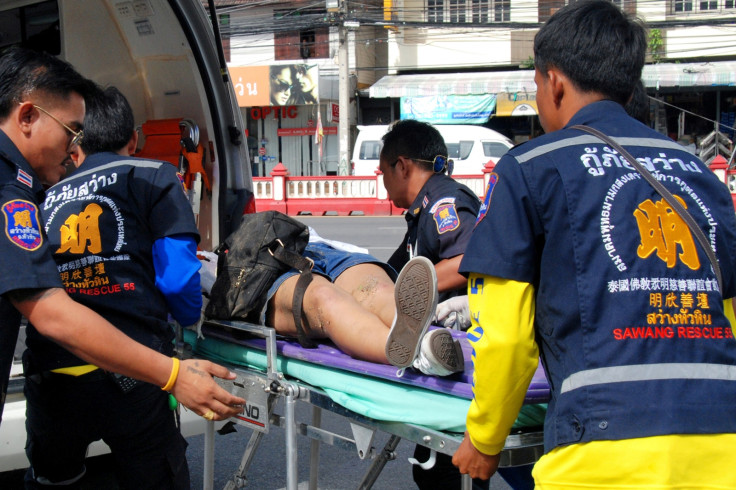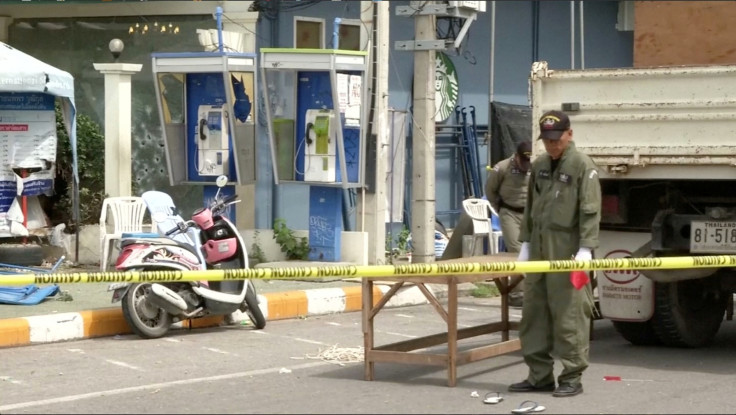PM Prayuth Chan-ocha orders emergency security measures after multiple bombings in Thailand
UK Foreign Office issues travel warning to Britons, saying 'there is a high threat from terrorism'.
Thailand's Prime Minister Prayuth Chan-ocha has ordered emergency security measures after the country was hit by a series of bomb blasts. Multiple explosions, including at popular tourist spots, have killed at least four people and injured more than 30 others.
The prime minister has urged law enforcement agencies to beef up security – especially at tourist destinations and other landmark areas. The police held a press conference on Friday (12 August) confirming the latest death toll. Authorities have not yet pointed fingers at any specific group for the attacks but ruled out Islamic insurgents.
Royal Thai Police official Colonel Krisana Patanacharoen told reporters: "We are sure that it is not linked to terrorism." Thailand's national police chief added that they had prior warning from intelligence of imminent terror attacks but there was no precise information.
Suthep Thaugsuban, former top Thai politician and chairman of People's Democratic Reform Foundation (PDRF), also said the attacks are politically motivated. Suthep said: "The perpetrators wanted to create panic among people and wanted the people to think that the government is incompetent. As a result, we need to support the government."

In total, at least eight blasts have been reported across several towns in Thailand. The defence ministry has said a top-level meeting will be convened at 1pm local time to address the situation. The closed-door meeting will be chaired by Defence Minister General Prawit Wongsuwan and chiefs of all the security agencies would take part. Officials have also set up multiple checkpoints in key locations as part of a nationwide security beef-up. Security has also been heightened at the Phuket international airport.

Government spokesperson, Major General Sansern Kaewkamnerd, said: "The PM has issued emergency orders to the relevant agencies in the areas to prevent other bombing incident from happening again, increase the security in the crowd areas, and appoint those who [are] responsible to handle the situation on the emergency event." The Thai premier has also offered his condolences to the victims.
The government has not yet commented on who could be behind the blasts, but insisted that all those who masterminded the explosions would be punished. A general alert has also been issued calling on the public to remain vigilant in the wake of the bombings.
A series of explosions in four different provinces occurred within a span of 24 hours across Thailand. According to the BBC, two blasts took place in Hua Hin, Surat Thani and Phuket, while one detonation rocked Trang. Authorities defused one bomb.
The latest incident involved the twin explosions in Surat Thani's Muang district on Friday (12 August) morning. The blast, which was carried out just outside a police station, killed one person and injured many others.
The UK Foreign Office issued a travel warning in the aftermath of the attacks. It said: "You should avoid public places in the vicinity and follow the advice of local authorities. There is a high threat from terrorism." At least two British tourists are thought to have been injured in the blasts, although there has been no official confirmation.
The bombings come within days of Thailand holding a controversial referendum, in which a majority of voters backed the military-written constitution.

© Copyright IBTimes 2025. All rights reserved.




















